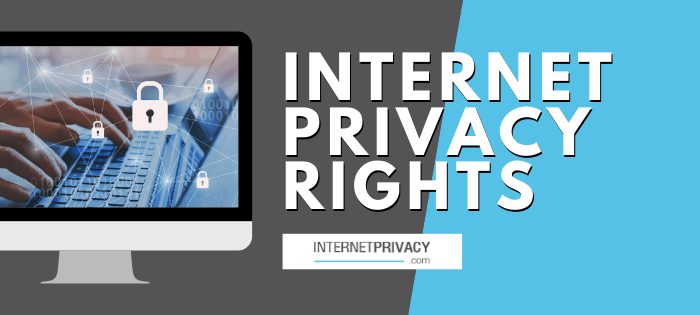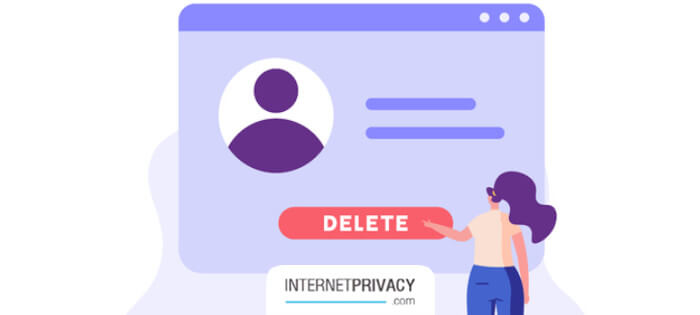What Are Your Internet Privacy Rights?

What are internet privacy rights? How do you protect yourself and your info across the web? Our Privacy Team offers some helpful tips for safeguarding your privacy online.
It’s awesome the way the world wide web has consumed itself entirely, as a method of life, in society. The Internet provides individuals with many favorable outlets. It’s a new method of life. It’s altered the way we get news or use for jobs or go to school or locate buddies. The worldwide web is the revolution of this 21st-century which has altered the way we conduct business, relax and work.
There are a number of negative facets of using the net. Among the greatest is cybercrime. It’s necessary to know that as you’re browsing the World Wide Web you have particular rights. There are 3 steps that you ought to take so as to make sure your internet privacy rights when using the net. Take these few actions to be able to secure your private data from being stolen.
Whenever you supply personal information to a person over the Web you always need to ensure the transmission is protected. Be sure that you look for the unbroken padlock at the bottom of the display. Right-click about the padlock to ensure the safety certificate has just been upgraded. Another step to securing your Online privacy rights would be to be acquainted with applications like anti-virus applications, firewalls, and anti-virus programs. Anybody that has a computer ought to be familiar with these kinds of applications.
The next step you should take would be to examine privacy policies. This usually means you ought to get in the habit of studying the privacy policy of every site you visit. The site’s policy advice will alert you to the way your information is sold or shared. Follow the following steps to guard yourself on the world wide web.

Internet Privacy Rights at Work
Non-company Chatrooms & Forums
You’ve got a right of privacy in your use of non-employer chat rooms, net bulletin boards, social websites or sites, but only if this media is password restricted to individuals screened to take part in the forum. The issue of privacy arises when workers disparage or criticize a company, its goods or its clients on these e-sites, and also the company finds the communications.
The company then strikes the participating employees, who assert the terminations have been in breach of”public policy” protecting privacy. In other words, no case directly addresses privacy rights specifically covering using sites, chat rooms, social networks, or digital list providers.
The top directing principle then is your default common law principle: “Does this individual have a reasonable expectation of privacy” with this specific communication in such circumstances.
If your preferences on Facebook are totally open and unrestricted on the planet, you can hardly claim a”solitude” expectation. [That you just use a password to log-on into some social media doesn’t indicate that you reasonably expect your postings to become”personal”]. The employer can assert it actually does not have any obligation in law to employ individuals who demonstrate low esteem because of its small business.
On the flip side, if you do an exemplary job, keep your comments to yourself on the job, and in case you’ve restricted the accessibility and involvement of other people into your off-site internet postings, then you most likely have the right to be left alone by the company.
Be careful, however. Simply post to online forums on your own time, and do not use your company’s servers or computers. Routing the communications via business computers and servers may eliminate any privacy anticipation.
Use Common Sense
If you’ve got a workgroup that creates off-hours, off-site online sites or chat rooms to denigrate their company, you face the risk that among those participants will flip, and reveal at least one of the other participants. This defector then can give permission to the direction to get the website by supplying their password.
Regrettably, the solitude has vanished, unless you can convince your defector to testify he or she had been threatened with discipline or judgment if she didn’t grant access. Standard information: select your forum participants cautiously and restrict the amount, to keep better control.
Remember You Don’t Own Your Email
Your privacy to private communications with company email accounts and company community servers will be dependent on if your employer has advised you satisfactorily your email will likely be deemed the property of their employer, or it will be subject to hunt, tracking, and review.
Such notice is generally delivered as a written firm email privacy policy utilized in the organization’s intranet policy manual. To put it differently, you most likely haven’t noticed it, however, if suppose it is, or you ought to search and ask about it prior to assuming your private emails are personal.
Unauthorized Internet Service Providers
Should you use a non-employer internet service provider [“ISP”] to slander the company, or to disclose its own inner trade secrets or private operations, the company might attempt to find evidence of these communications by serving subpoenas on the ISP.
A California court has ruled that a company’s support of a subpoena on the ISP to acquire in the identities of men sending mails to or getting mails from an employee concerning the company’s business isn’t an enforceable subpoena.
Nothing is Private at Work
Imagine if the worker installs a”solitude” program at your employer’s computer?
These programs frequently are”secure-erasure” apps that block the retrieval of deleted files. [Employees frequently believe that they are”secure” by minding private emails or personal documents from their company’s system. Not so. These are nearly always still recoverable from the company’s I.T. employees ].
Installation of this application violates the law if it’s loaded without consent, and utilized to”harm” the company’s data.

Specific State Statutes
6. In California, a company trying to quell personal, off-hours, off-site communications might be the topic of an”anti-SLAPP movement”. [Code of Civil Procedure § 425.16] This legislation essentially gives a litigant the opportunity to introduce litigation as a meritless pair of allegations with the hidden goal of intimidating another party from communicating openly within an”issue of public interest”.
A worker who works for a financial institution, as an instance, who utilizes a non-employer online website during off-hours, also using her own personal computer and ISP, articles an opinion critical of the banking business and of her company especially would probably prevail in getting the company’s complaint ignored as an intimidation tactic meant to chill an inherent right of free speech.
To acquire the movement, the worker would have to demonstrate two things: her address or writing was of”public interest” and the employer’s lawsuit against her lacked some significant facts to support that the charges. By way of instance, if the company asserted defamation, the worker could counter with proof that she was only stating an opinion, or her assertions of truth were accurate.
Needless to say, if she’s fired for her communicating, she may also file a lawsuit against her employer for wrongful termination alleging the exact same illegal employer rationale: to penalize her free speech rights.
You Have Internet Privacy Rights. Protect Them
In conclusion, employers frequently cross the line when trying to restrain workers only because they possess the tools to do so. However, internet privacy rights are so basic to our life for a state that legislation is enacted or instances determined that”level the field” for workers.
By way of instance, juries could award punitive damages against companies willfully violating worker privacy rights. Many worker lawyers are eager to pursue these instances “on contingency”, which is, to reevaluate their charges as a proportion of your settlement if recovered by suit or settlement.





